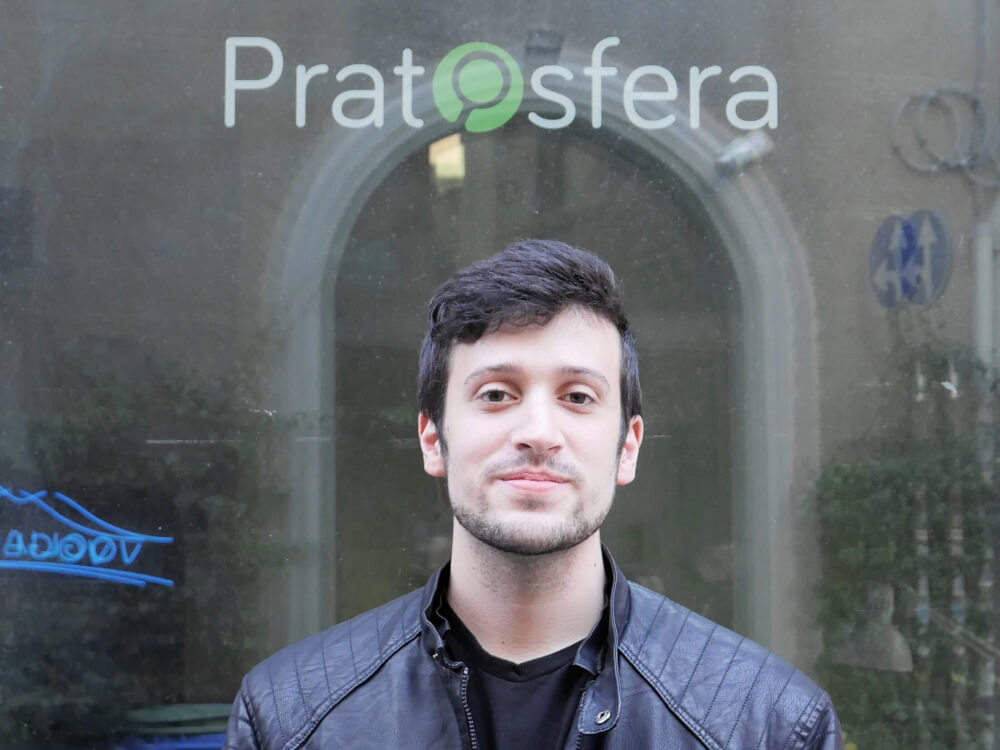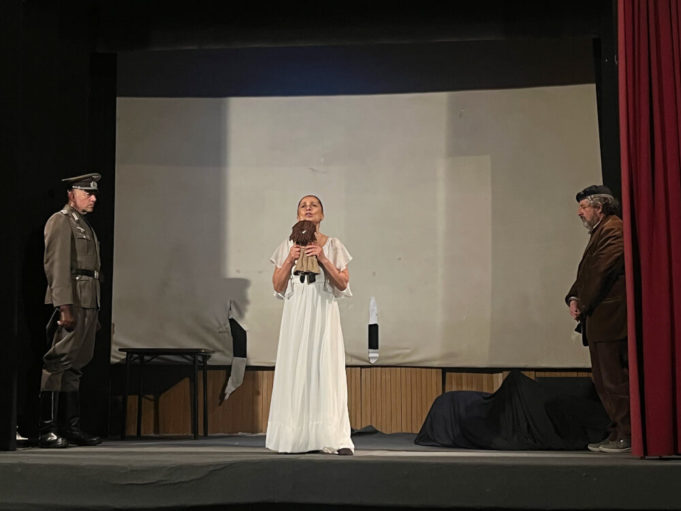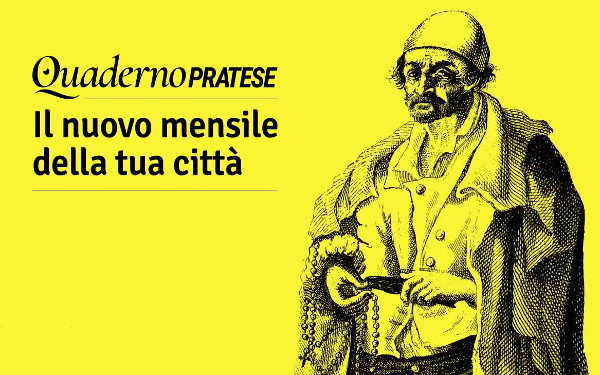Durante il liceo, sono stato sempre coinvolto nel teatro, e ho recitato in molti spettacoli. Che si trattasse di musical o spettacoli in generale, sono sempre stato coinvolto. Anche se non ho fatto teatro mai durante l’università, mi è stata data l’opportunità di dare una mano con uno
spettacolo italiano, qui a Prato.
Lo spettacolo si chiama “Divisa,” ed è una versione teatrale di un romanzo (MDS, 2022) scritto da Piero Ianniello, uno dei miei professori all’Università di New Haven. Lo spettacolo è per la regia di Mike Ricci, ed è ambientato in Italia durante la Seconda Guerra Mondiale. Parla di una ragazza che viene “divisa,” quando viene separata dal padre, risparmiata da uno dei soldati nazisti, e mandata a vivere con un farmacista. Anche se è passato un po’ di tempo da quando ho fatto teatro, è stata un’esperienza illuminante vedere e aiutare in uno spettacolo italiano. Anche se ci sono differenze nel modo di scrivere gli spettacoli in italiano e in inglese, continuo a vedere la stessa passione per la narrazione.
In “Divisa” non recito ma aiuto con la scenografia e con l’audio. In realtà, passo la maggior parte del tempo ad osservare. Lo spettacolo è un po’ più breve di quanto mi aspettassi—meno di un’ora—ma, tuttavia, la trama è molto potente. Ogni settimana ci siamo incontrati per fare le prove in preparazione al debutto, che sarà venerdì, 14 aprile, e domenica, 16 aprile al Teatro Magnolfi.
Come molte cose che ho vissuto in Italia, mi aspettavo molte differenze tra il teatro in Italia e negli Stati Uniti. Invece ho trovato che—in questo spettacolo soprattutto —ci sono più somiglianze che differenze.
Però, per quanto riguarda la storia, ho trovato che si focalizza su un punto nella storia d’Italia molto importante: la Seconda Guerra Mondiale e le sofferenze patite. In molti spettacoli storici negli Stati Uniti, si troverà che si focalizzano su eventi importanti nella sua storia – da una prospettiva americana. Per esempio, ho visto molti spettacoli americani che focalizzano sulla Seconda Guerra Mondiale, ma da una prospettiva americana, in cui gli americani stanno combattendo la guerra all’estero. Di più, anche se non ci sono molte differenze rispetto a come sono scritti gli spettacoli, il tema degli spettacoli è un po’ diverso. Specificamente, per quanto riguarda la guerra, e la Seconda Guerra Mondiale, gli americani tendono ad esaltare la violenza e il ruolo di un soldato — non solo negli spettacoli, ma nei media in generale, almeno come ho osservato io. Per giunta — e per la maggior parte perché sto studiando la storia della Shoah in Italia — ho realizzato che la rappresentazione della Seconda Guerra Mondiale è diversa negli Stati Uniti, un fatto che viene dalla realtà che la Shoah non è una storia sentita per la maggior parte degli Americani.
Insomma, quando si parla di teatro in generale, non ci sono molte differenze, ma il tema di questo spettacolo sottolinea molte differenze tra le due culture. Nota finale: mentre sono alle prove, non capisco tutto, ma ho trovato che comunque è un’esperienza molto affascinante, e ho imparato molto della storia d’Italia e del teatro italiano.

Samuel Weinmann sta raccontando Prato dal punto di vista di uno studente americano in soggiorno in città. Segue spettacoli, concerti, incontra persone e poi ne scrive in italiano e in inglese. Leggi tutti gli articoli
Versione inglese
Throughout high school, I was always involved in theater, and I acted in many plays. Whether it was musicals or straight plays, I always seemed to find myself involved in some way. Even though I’ve found myself much too busy to participate in theater throughout college, I was recently given the opportunity to help out with a local Italian production here in Prato.
The play is called “Divisa,” (MDS, 2022) and it is a theatrical version of a novel written by Piero Ianniello, one of my professors at the University of New Haven. The play is directed by Mike Ricci, and it takes place in Italy during WWII. It focuses on the story of a girl who becomes divided [“divisa”] when she is separated from her father, taken by a Nazi soldier, and sent to live with a pharmacist.
Furthermore, even though it has been a bit since I’ve done theater, it has thus far been a very illuminating experience to help with an Italian play. Even though there are differences in the way that plays are written in Italian and English, I continue to see the same passion for storytelling, nonetheless. With “Divisa,” I don’t act, but instead I help with the set and with the show’s audio. In fact, I spend a large portion of my time merely observing. The play is a bit shorter than I had expected—less than an hour—but overall, the storyline is very powerful.
Every week we meet to rehearse in preparation for our debut, which will be Friday, April 14 th, and Sunday, April 16 th.
Like many things that I have experienced in Italy, I expected that theater too would be different in many respects from the United States. Instead, I have found that—at least in this show specifically—there are more similarities than differences. However, regarding history, I found that this play focuses on a very important point in Italian history, which was WWII and the suffering endured. For many historical plays in the United States, one will find that they focus on important points in the country’s history—from an American perspective. For example, I have seen many American plays that focus on WWII from an American perspective, in which Americans are fighting the war abroad.
What’s more, even though there are many differences in respect to how plays are written, the way that Italian productions approach certain themes tends to differ. Specifically, regarding war, Americans tend to glorify violence, war, and the role of a soldier—something that occurs not just in plays, but in media in general, at least from what I have observed.
Additionally, and for the most part because I have been learning about the history of the Shoah in Italy, I have realized that the representation of WWII is different in the United Sates, a fact that comes from the reality that the Shoah is not a lived history for most Americans. In the end,
for theater in general, there aren’t many differences, but the theme of this play specifically represents many differences between the two cultures.
Moreover, as I reflect on these rehearsals, I find that although I may not be able to understand every line in the play, it is a very fascinating experience, and I have learned much about Italian history and Italian theater.







